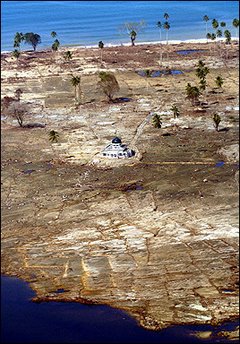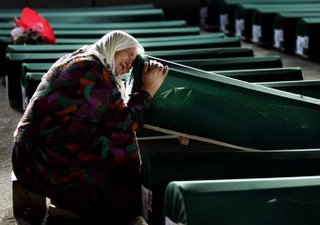By JAD MOUAWAD
The New York Times
December 23, 2005
KUWAIT CITY, Kuwait, Dec. 16 - Thirty years after foreign oil companies were expelled from Kuwait, the state is close to opening its lucrative oil production business again to outsiders.
The move, expected to be approved by Parliament next month after nearly a decade of debate and delays, means that one of the top producers in the Persian Gulf finally will lift some of the restrictions imposed on foreign operators. The decision is also eagerly anticipated in oil circles because of hopes that the proposal, which would limit foreign operation to selected fields for a 20-year period, could eventually be extended to other fields in the country and possibly elsewhere in the region.
Recent high oil prices have encouraged governments to further tighten the rules governing foreign participation and prompted a new wave of "resource nationalism." Venezuela, Russia and Bolivia each have pushed for greater control, while Britain plans to increase taxes on its production from the North Sea.
At the same time, producers have come under growing pressure over the last year to increase their investments and bring more oil to the market. But while worldwide demand for oil has been rising rapidly, supplies have so far lagged, especially from OPEC nations.
The reopening to foreigners is so politically charged here that the plan, called Project Kuwait, has been mired in squabbles since it was introduced in 1997. As a result of the opposition to bringing in foreign companies - a movement that brought together a band of Islamic and liberal parties in the Kuwaiti Parliament - production growth has stalled in Kuwait, just as global demand has soared in recent years.
Oil was first discovered in Kuwait in 1938 by the British-Iranian Oil Company, which later became British Petroleum, and by Gulf Oil, now part of Chevron. Most of the country's production has since come from a single field, Burgan, which has accounted for 80 percent of Kuwait's total output.
That oil field, the world's second-largest after Ghawar in Saudi Arabia, is now showing signs of fatigue. Kuwaiti officials would like to take the pressure off by pumping more oil from other fields, including four in the north of the country that Project Kuwait would open to foreign companies.
"Our part of the world needs to increase its capacity to meet the projected growth in demand over the coming years," said Nader Sultan, the former chief executive of the Kuwait Petroleum Corporation and a strong backer of the plan. "There is pressure on us to increase our capacity. The question then becomes, Can we do it alone?"
Years of underinvestment in Kuwait have led to slowing output since the 1970's. Kuwait oil officials argue that they need the help of global oil companies to manage the more challenging extraction methods required at the newer oil reservoirs, now that the country's easy oil has been removed.
Last year, Kuwait pumped about 3 percent of the oil produced worldwide, or about 2.5 million barrels a day. The country hopes to raise daily production to four million barrels by 2020. By then, Project Kuwait is expected to account for a third of the country's production.
But at these volumes, Kuwait will also be pumping out 10 million barrels a day of water associated with the oil production process. Officials say the country's state-owned oil company cannot do this without foreign expertise.
There are other nontechnical reasons for the invitation. With oil selling around $60 a barrel, any delay in increasing production means Kuwait will be missing out on the greatest oil boom in three decades and millions of dollars in profits every week. Some also believe that welcoming international oil companies, including some from the United States, would provide additional security for Kuwait, which was invaded by Iraq in 1990 and served as a major staging ground to the American invasion of Iraq in 2003.
Kuwait's constitution bars foreign companies from owning or operating the country's oil resources. So Parliament, which has been fighting the government to gain a larger oversight role in running the country, must conduct a formal vote to allow the government to invite foreign operators back. Foreign companies are currently allowed in Kuwait only as service providers on behalf of Kuwait's oil company, not as operators.
"The step the government wants to take is against the law, and we have to stand against it strongly," said Naser al-Sane, a member of Kuwait's Parliament since 1992, who is part of the Islamic Constitutional Movement. "The constitutional issue is the main one. We're not against foreign investments, but the problem is that you have to stick to the constitution."
Abdulla al-Nibari, a former member of Parliament who helped nationalize the oil industry in 1975 and who opposes Project Kuwait, says he does not believe the country needs to increase its production. Kuwait, he said, can keep using foreign service companies to provide technical assistance without having to bring back any of the major oil companies, which controlled the country's energy for decades.
"I don't buy the argument that the market needs more," Mr. Nibari said. "We produce oil to get money to cover our expense. That's our responsibility. Two million barrels is enough. Our experience is that surplus money is squandered, sometimes embezzled. Oil in the ground is a much better form of savings."
To break the long-standing deadlock, the government has agreed to Parliament's main demands. For example, the oil produced will remain the property of Kuwait; ownership will not be transferred. Also, the contracts will be considered service agreements, not foreign concessions. All of this means that the oil companies will not be allowed to book the reserves from the fields they operate.
While many now expect the government to win approval from Parliament, the ownership issue might prove to be a serious stumbling block for oil companies, which usually want to show oil reserves as assets on their books.
After all, this is the ultimate prize in the Persian Gulf for the oil companies. Five countries - Saudi Arabia, Iran, Iraq, Kuwait and the United Arab Emirates - hold 60 percent of the world's oil reserves, more than 700 billion barrels. But either because of government policies or because of economic sanctions and war, access by foreign companies to these vast reserves has been limited since the 1970's.
To be sure, the Persian Gulf is not completely free of international involvement. The United Arab Emirates brought in Exxon Mobil last year to expand a major production field that was already partly owned by a Japanese company. Qatar recently embarked on a multibillion-dollar program to build natural-gas exporting plants with Exxon Mobil and other foreign oil companies.
But Project Kuwait, experts said, is a big step for the oil world. Kuwait is the fourth-largest holder of oil, with 99 billion barrels of proven reserves, or 8 percent of the world's total, according to BP's Statistical Review of World Energy. The fields covered by Project Kuwait hold about 10 percent of these reserves.
Three groups of international oil companies, led by BP, Chevron and Exxon Mobil, have long been interested in the $8.5 billion project. If Parliament approves the project when it meets on Jan. 23, the government will award the bid on the basis of a single criterion, the minimum fee that each group is willing to take for each barrel they produce.
Throughout the history of oil, there has been a constant struggle between nations that hold the oil fields and consider them their property, and international oil companies, whose dominant role has been slowly eroded in the last century by the rise of nationalism.
But relations between nations and international companies are still evolving. Algeria, for example, nationalized its oil sector in 1971, a decade after gaining its independence from France. In 1991, it allowed foreign oil companies back.
"I see no contradiction in that," said Nordine Ait-Laoussine, who helped engineer both moves, first as head of Sonatrach, the country's state oil company and, two decades later, as Algeria's oil minister.
"What we did in Algeria was always in the interest of the nation," Mr. Ait-Laoussine said. "And in 20 years, the national interest changed."
For Ahmad al-Arbeed, the member of the board of the Kuwait Petroleum Corporation who is in charge of Project Kuwait, there is also a "philosophical aspect to the debate."
"I am a follower of the school that says we should be a good citizen and we should make available the oil that the world needs," he said. "That's the whole objective of having an oil sector in Kuwait."
He added, "Also, if we waited another 20 years, there might be alternatives to oil. It's better for us to produce as quickly as possible and increase our revenue."
Such talk is unlikely to reassure those who argue that involving foreign companies, who have an incentive to maximize production and financial returns, risks squandering the nation's resources.
Mr. Nibari, the veteran politician, recalled that in 1972 British Petroleum and Gulf had planned to raise Kuwait's production to five million barrels a day, accelerating the depletion rate of the Burgan field and increasing the amount of water that is generally pumped out with the oil. The project was eventually shelved when the industry was nationalized.
"The question now will be a question of political stamina and dynamism and whether the government doesn't get sidetracked by other issues," said Mr. Sultan, the former oil executive. "You really have to be focused on this."
The country's oil minister, a member of the ruling al-Sabah family, appeared ready to push for the votes next month.
"It is my understanding that there are always oppositions and supporters - this is democracy," Sheik Ahmad Fahd al-Sabah, Kuwait's oil minister, said in a news conference in Kuwait City. "For me, as a minister, I think I have to make it a priority on the energy side. But, God willing, I am crossing my fingers."






